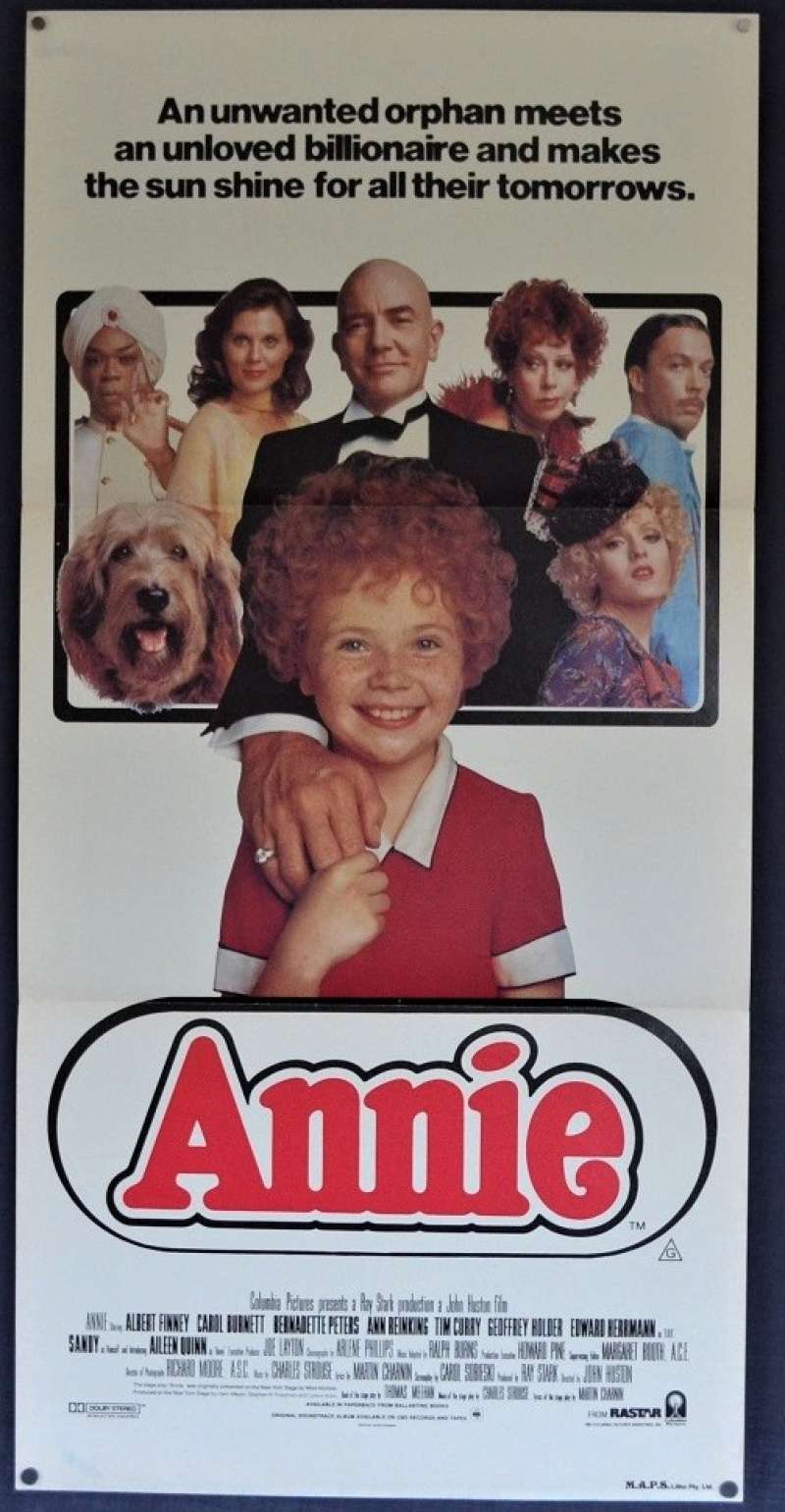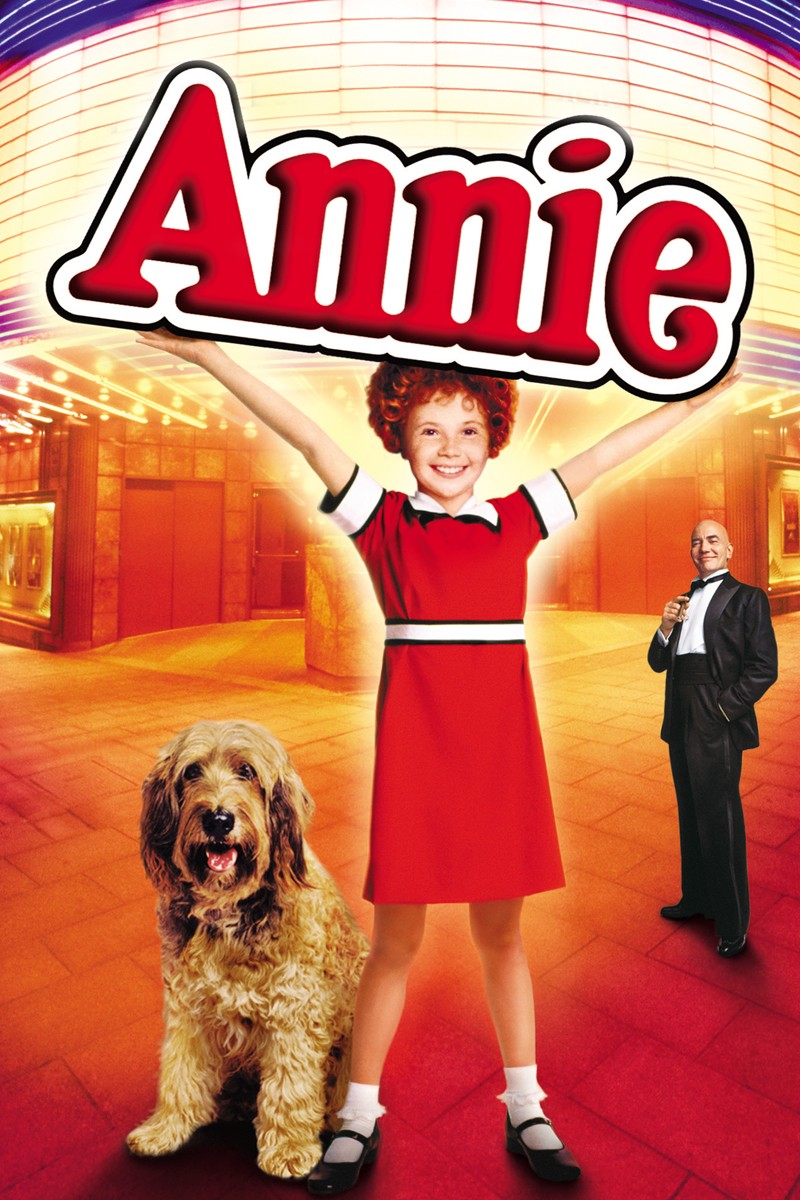Can a story of hope, resilience, and unwavering optimism truly capture the hearts of audiences across generations? The 1982 film adaptation of Annie not only achieved this feat but also remains a vibrant testament to the enduring power of the human spirit, resonating with viewers even today.
The film, a musical comedy-drama, originally based on the Broadway musical, itself inspired by the Little Orphan Annie comic strip, unfurls against the backdrop of the Great Depression. Directed by John Huston and penned by Carol Sobieski, Annie takes us on a journey with its titular character, an orphan girl named Annie, who, against all odds, maintains an unwavering belief in the goodness of the world and the hope of finding her parents.
Here's a glimpse into the key figures behind the cinematic magic:
| Category | Details |
|---|---|
| Title | Annie (1982) |
| Genre | Musical Comedy-Drama |
| Director | John Huston |
| Writer | Carol Sobieski |
| Based on | The Broadway musical Annie by Charles Strouse, Martin Charnin, and Thomas Meehan, which in turn is based on the Little Orphan Annie comic strip by Harold Gray. |
| Release Date | May 21, 1982 |
| Running Time | 2 hours, 7 minutes |
| Rating | PG |
| Main Cast Members |
|
| Synopsis | An orphan girl living in a facility run by the cruel Miss Hannigan believes her parents left her there by mistake. When a wealthy man, Oliver Daddy Warbucks, decides to invite an orphan into his home to boost his public image, Annie is selected. While Annie adjusts to her new life in Warbucks' mansion, she continues to yearn to find her parents. Warbucks then launches a search for them, offering a reward. |
| Awards and Nominations | Nominated for two Academy Awards. |
| Reference | IMDb |
The film’s narrative transports viewers to a stark yet hopeful reality. The Great Depression serves as a powerful backdrop, painting a picture of hardship and scarcity that allows Annie's indomitable spirit to shine even brighter. The story underscores the importance of family, compassion, and the belief in the inherent goodness within people. Annie’s unwavering optimism, even when facing adversity, acts as a beacon of hope, drawing viewers into her world and making them root for her every step of the way.
The central character, Annie, embodies the spirit of resilience. Played by Aileen Quinn, she brings a unique blend of charm, vulnerability, and spunk to the role. Annie’s unwavering faith in a better future fuels her journey, showcasing her determination to escape the orphanage and find her parents. Her hope is infectious, drawing everyone around her into her optimistic vision.
The supporting cast enriches the narrative considerably. Albert Finney portrays the initially stern and pragmatic Oliver Daddy Warbucks, a wealthy man who undergoes a transformation as he encounters Annie's warmth and goodness. Carol Burnett as Miss Hannigan, the orphanage's cruel and self-serving matron, delivers a performance filled with comedic timing and dramatic flair. Her interactions with Annie create both conflict and moments of surprising vulnerability, further highlighting the film’s central themes of love and acceptance.
The musical numbers are woven seamlessly into the story, driving the narrative forward and enhancing the emotional impact of key scenes. Iconic songs like Tomorrow, It's the Hard-Knock Life, and Maybe have become timeless classics, loved by generations. They contribute significantly to the film’s upbeat tone, making it a joyous and memorable cinematic experience.
The success of “Annie” lies in its ability to blend lighthearted musical numbers with a deeper exploration of social issues. The film’s depiction of the harsh realities of the Great Depression is balanced with the heartwarming message of hope and the power of human connection. While the film is primarily a feel-good musical, it doesn’t shy away from depicting poverty, neglect, and the challenges faced by those struggling during the economic crisis.
The film’s visuals contribute significantly to its appeal. The art direction, costumes, and cinematography combine to create a world that is both stylized and visually striking. The contrast between the grimy, impoverished world of the orphanage and the opulence of Warbucks’ mansion further emphasizes the themes of class disparity and the transformative power of kindness.
The casting decisions also helped the film's success. The actors brought a sense of authenticity and skill to their respective roles. Aileen Quinn captured the essence of Annie, and the supporting cast, including Albert Finney, Carol Burnett, Bernadette Peters, and Tim Curry, added depth and complexity to the story, which helped make it a memorable film.
Beyond its entertainment value, Annie offers valuable lessons about resilience, compassion, and the enduring power of hope. It demonstrates the importance of believing in oneself, even when faced with seemingly insurmountable obstacles. Annie’s unwavering belief in the possibility of a brighter future inspires audiences to embrace optimism, even during the darkest of times. The film also emphasizes the significance of family, highlighting the love and support that can be found in unexpected places. The film challenges societal norms by demonstrating how love and kindness can transcend economic and social divides.
The film's legacy continues to live on, inspiring new generations. Annie has become a staple in popular culture, captivating audiences through its themes of hope, love, and family. The original film's success led to several stage revivals, television adaptations, and even a more recent film version. These adaptations have helped to keep the story alive, introducing Annie's story to new audiences. The musical's enduring appeal ensures that it continues to entertain and inspire audiences worldwide.
The impact of Annie extends beyond the realm of entertainment. The film’s themes of hope, resilience, and the power of human connection resonate deeply within society. The film encourages audiences to confront and overcome adversity with a positive mindset. Its message of compassion, unity, and the importance of looking out for others fosters a sense of empathy among viewers. By showcasing how individuals can change, Annie serves as a reminder of the importance of kindness and the potential for creating positive change in the world.
In the realm of cinematic history, Annie stands out as a beloved film. Its blend of catchy musical numbers, its heartwarming story, and the captivating performances of its cast have cemented its place as a classic. The film provides an escape from everyday life and uplifts viewers with its message of hope and the importance of believing in one’s dreams.
The film’s enduring appeal ensures that it remains relevant and continues to inspire audiences. Annie serves as a reminder that, regardless of circumstances, it is crucial to maintain hope and to embrace the potential for change. Through its timeless story and unforgettable characters, Annie continues to touch hearts and inspire viewers across the globe, proving that even in the darkest of times, tomorrow is always just a day away.



